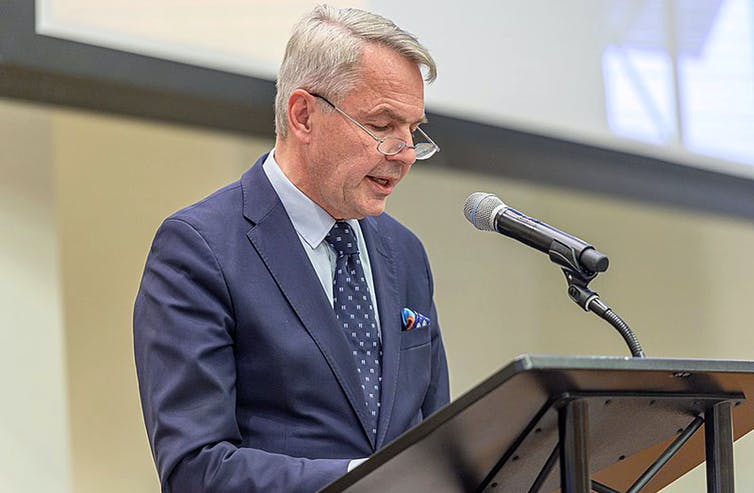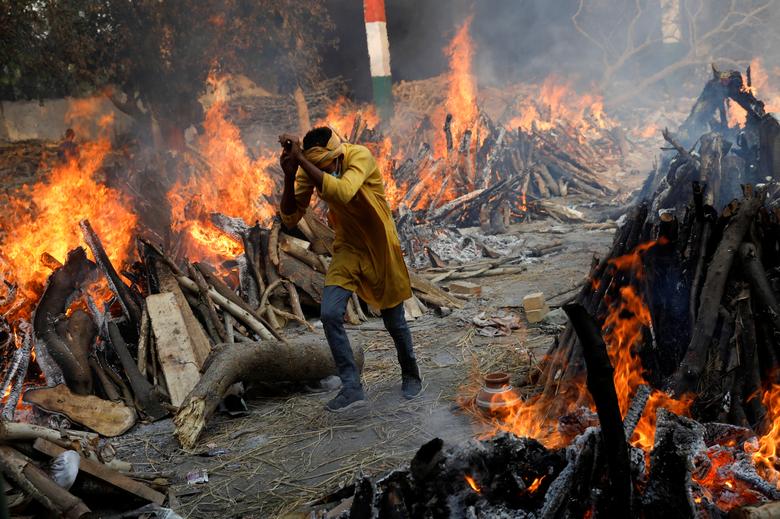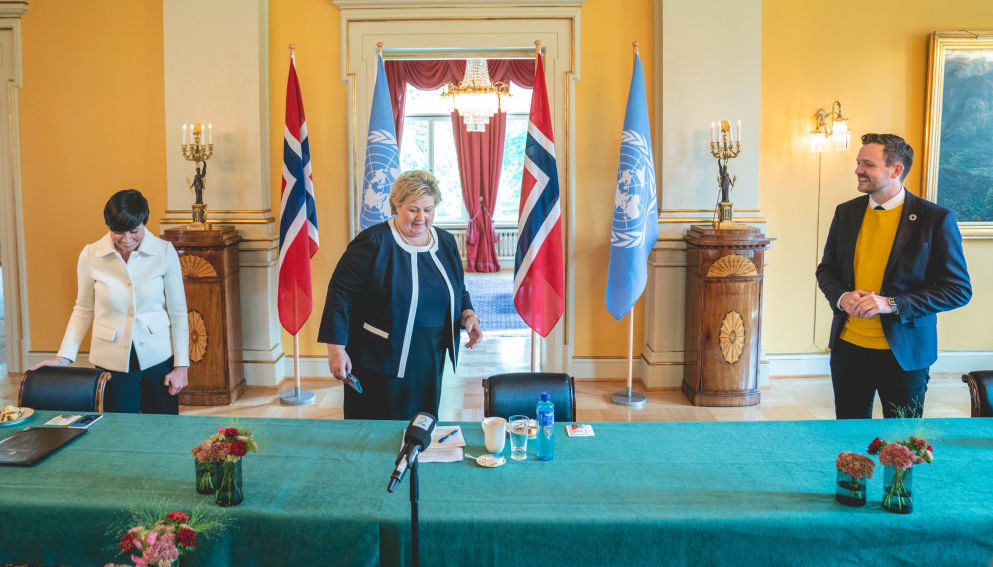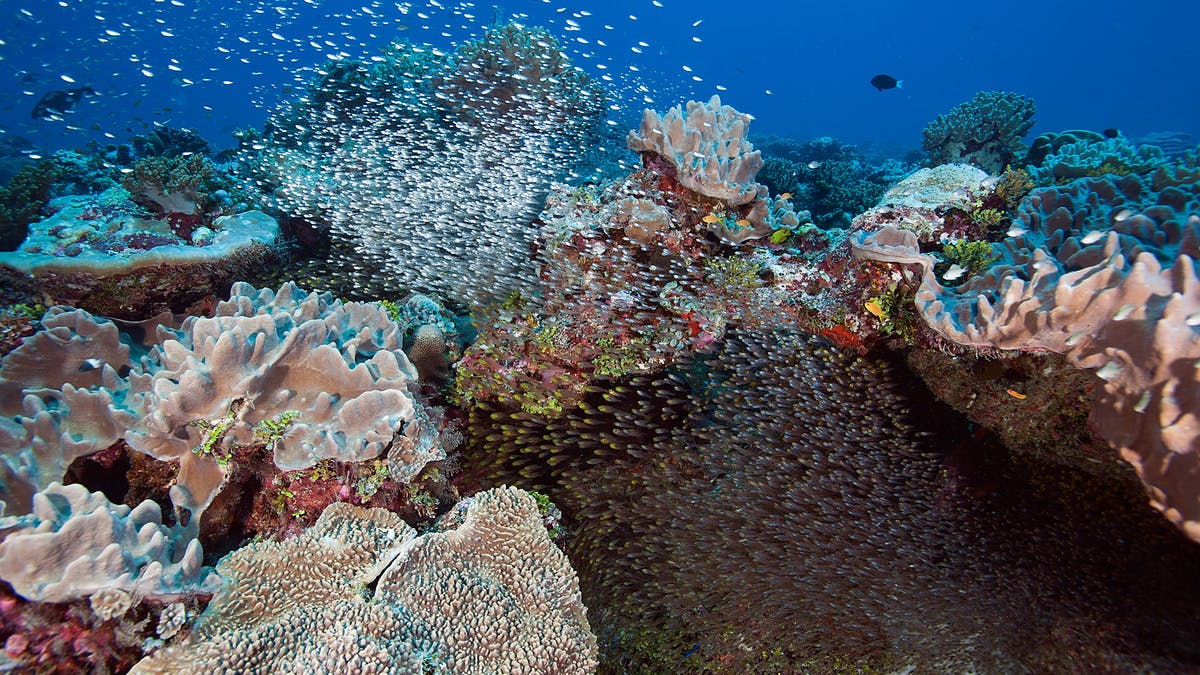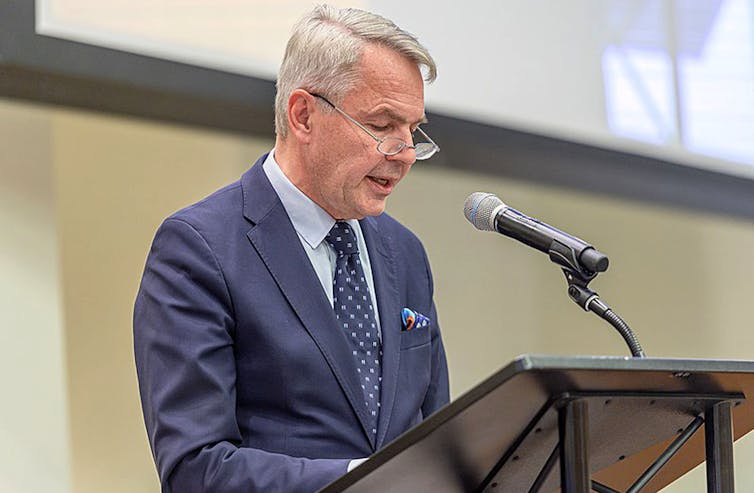
Suerie Moon, Graduate Institute – Institut de hautes études internationales et du développement (IHEID)
World leaders have reacted with shock and dismay to President Trump’s recent decision to suspend US public funding to the World Health Organization (WHO).
His move cuts off oxygen to the nerve centre of the global coronavirus response, just as more and more countries are counting on it. With voter approval dropping and US cases by far the highest worldwide, observers have seen a scapegoat in Trump’s decision. The move is also unjustified by the facts. What needs to be done now?
Other governments, philanthropies, and citizens urgently need to fund the organisation. Finland and Ireland stepped up immediately to increase their contributions by several million dollars. But hundreds of millions will be needed. In recent years, Trump’s sledgehammer approach to international institutions has prompted other countries to fill the rapidly growing vacuum of American global leadership.
Simon Coveney, Ireland’s Tanaiste and Minister for Foreign Affairs and Trade;
#Ireland strongly supports @WHO in efforts to coordinate a global response to combat #COVID19. So many countries rely on @UN expertise and capacity to save lives. Ireland is quadrupling our normal annual financial contribution to @WHO for 2020 to €9.5 million.
— Simon Coveney (@simoncoveney) April 16, 2020
Ireland’s Health Minister Simon Harris;
Now more than ever we need national and global solidarity. We all need to work together to tackle this #Covid19 global pandemic. We are all in this together. The @WHO is playing a crucial role. Any effort to undermine its work is dangerous, illogical & harmful #coronavirus https://t.co/BiWCUw7KWR
— Simon Harris TD (@SimonHarrisTD) April 15, 2020
For example, after the US pulled funding for the UN Population Fund in 2016, the multi-country “She Decides” initiative mobilised an equivalent amount to close the gap for sexual and reproductive rights. Late last year, US officials also brought the World Trade Organization’s appeals court to a grinding halt by blocking the approval of judges. In response, Europe, China and other major trading nations put in place a workaround to maintain a rules-based system for settling trade disputes.
In February, WHO called for $675 million to support the global Covid-19 response, and far more will be needed. Though a pittance compared to multi-billion- and trillion-dollar rescue packages, governments may struggle to find more money for WHO amidst their own economic crises.
Filling the gap
It has become clear that private citizens and philanthropies also need to help. Faced with an anemic response to its initial funding plea, WHO launched the Covid-19 Solidarity Response Fund in March. This is the first time WHO has appealed directly to the general public for financial support, and has raised nearly $200 million to date. While this outpouring of generosity is encouraging, it falls far short of the budget gap that the US has now widened. That a public appeal was necessary at all is a symptom of a deeply broken system.
WHO was created as an intergovernmental organisation, intended to be funded through reliable tax-based contributions from its member states. Such a financing system is critical for WHO’s ability to make independent public health judgements, with at least some degree of insulation from the inevitable political and economic pressures of governments and industries.
To illustrate: WHO’s declaration of Covid-19 as an international public health emergency in late January was unlikely to be welcomed by the Chinese government. Its ongoing evaluation of dozens of drugs and diagnostics can move stock prices, and will shape the fortunes of companies around the world.
The agency has been a steady and trusted source of information and carefully-weighed guidance. WHO technical guidelines are often referred to as “the Bible” in developing countries where the pandemic’s epicentre seems to be heading next.
WHO has developed over 40 such guidelines since January on Covid-19 alone, covering a dizzying array of topics on which countries urgently need advice. Normally, these documents take years to finalize, rest on a large evidence base, and reflect the world’s leading expert views. In the face of limited evidence and enormous scientific uncertainty about the novel coronavirus, experts will disagree with certain WHO recommendations – and some will later be proven wrong. But this is science, not negligence.
What the cuts mean
What does a US budget cut mean? At 16.4% of WHO’s most recent two-year budget, the US government is the organization’s largest funder at about $450 million per year. (In comparison, China funds 1.6% of WHO’s budget.) But what matters is not only the amount, but also the structure of funding. Only 25% is a mandatory contribution, with the remaining three-quarters voluntary funding allocated by many different US government agencies for specific American priorities. It’s not yet entirely clear which funding streams will be suspended and when, nor what legal or political challenges may be raised domestically. Because WHO works on a wide range of diseases and other health threats, an across-the-board funding cut would have implications far beyond Covid-19.
Less than 20% of WHO’s budget is guaranteed – the remainder is voluntary contributions from various governments, philanthropies, UN agencies, companies and NGOs. For much of WHO’s history, at least half its budget was guaranteed, but today over 80% is uncertain from year to year. Governments also regularly delay or withhold their required contributions, a means to seek more influence over the agency.
WHO’s funding woes have American roots. In the 1990s, a bipartisan Congressional effort froze US contributions to UN agencies, resulting in a cap on guaranteed budgets that forced WHO to rely increasingly on voluntary funding in the decades that followed.
Today, the organization’s financial fragility translates into limited political leeway vis-à-vis its member states. The organisation can hardly afford to offend any of its member states, let alone two of its most powerful. WHO’s director-general, Dr. Tedros, has puzzled some observers for lavishly praising the Chinese president’s handling of Covid-19. But he has done the same for the US president, regardless of the merits of either country’s response.
Helping countries prepare and respond
WHO staff have been working around the clock to slow down the pandemic and help countries to prepare and respond. They are courting exhaustion. Since mid-March most headquarters staff have been working from home under lockdown conditions in Geneva, which itself has had one of the highest per capita Covid-19 cases worldwide. Now is not the time to distract WHO leadership with a desperate search to plug budget holes.
When this crisis is behind us, the reckoning for all governments and WHO can and should begin. The question of how to ensure reliable, flexible, accountable funding for WHO must be high on the list. For now, each of us – individuals, charities, and governments – can make a concrete difference and send a powerful signal by funding WHO. When it comes to outbreaks of infectious disease, a more financially-secure and politically-robust WHO would better be able to protect us all.![]()
Suerie Moon, Co-director, Global Health Centre, Graduate Institute – Institut de hautes études internationales et du développement (IHEID)
This article is republished from The Conversation under a Creative Commons license. Read the original article.
